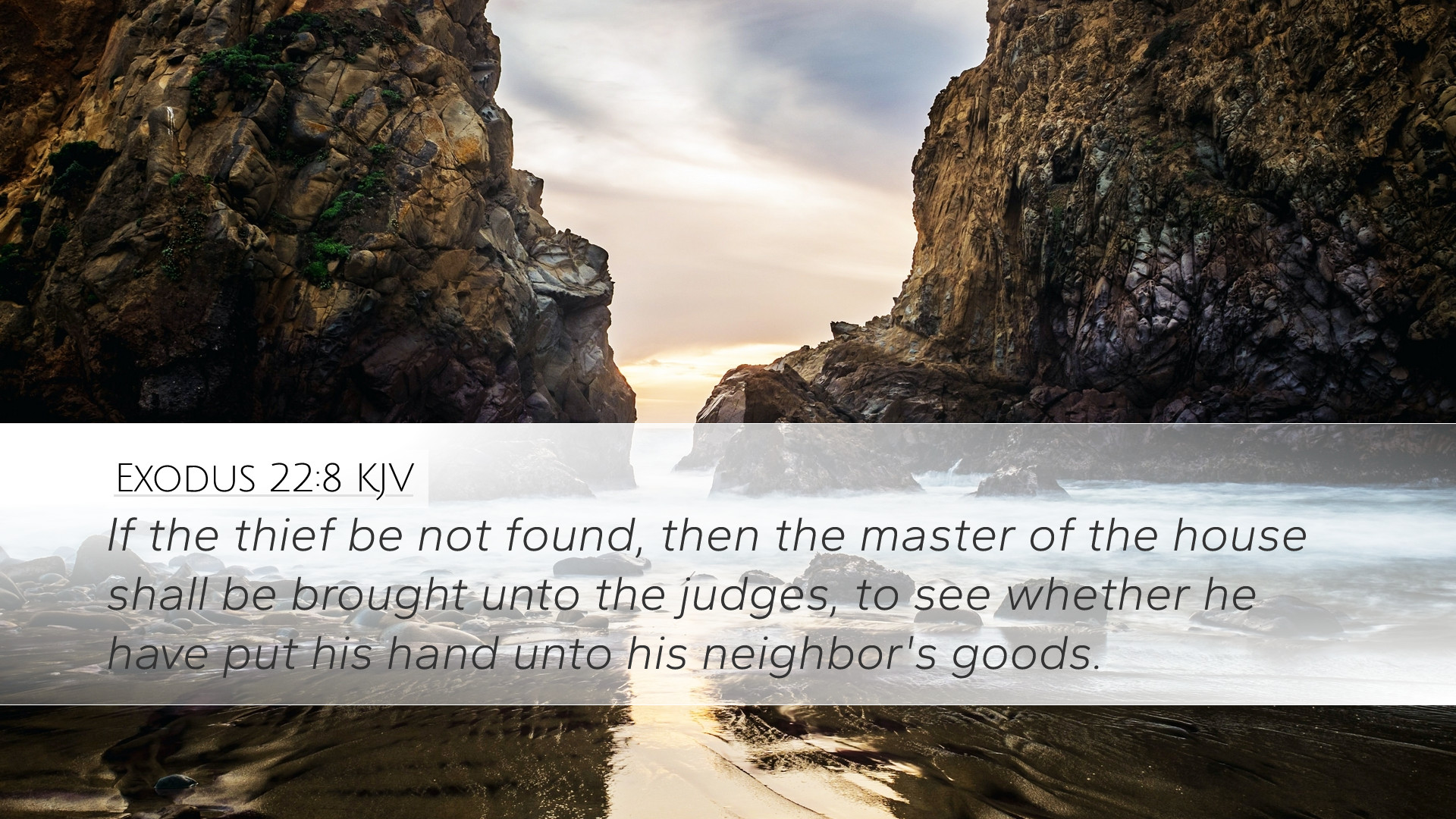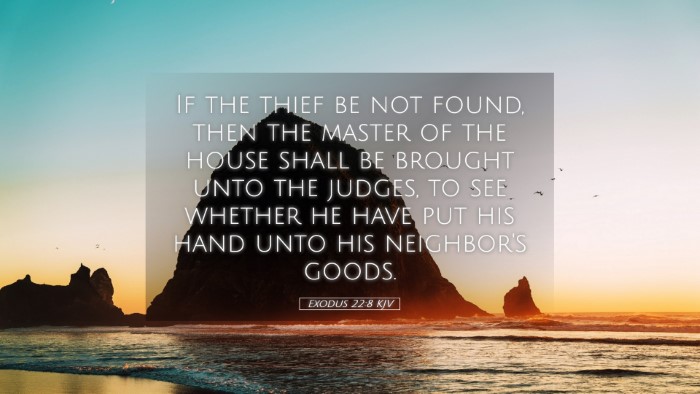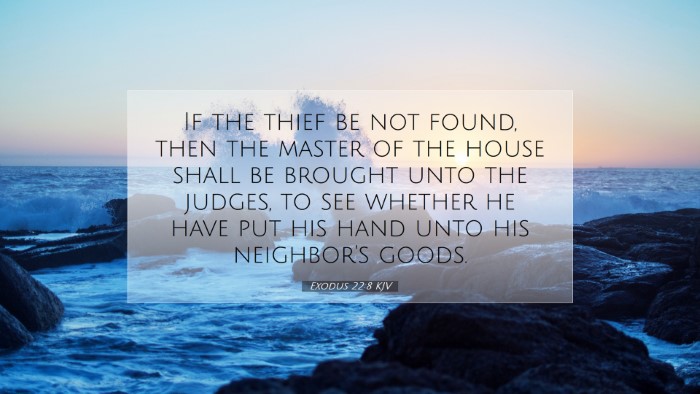Exodus 22:8 Commentary
Verse Context: Exodus 22:8 states: "If the thief is not found, then the master of the house shall be brought to the judges to see whether he has put his hand to his neighbor's goods." This verse is part of a broader collection of laws given to Israel that provide guidance for righteous living and justice in society.
Interpretation of the Verse
This verse addresses the situation where a theft is reported, but the thief remains unidentified. The responsibility falls upon the master of the house, emphasizing the importance of honesty and integrity within the community.
Key Themes
- Justice in the Community: The community is called to uphold justice, making it imperative that disputes regarding theft are resolved through the proper legal channels.
- Accountability: The master of the house is held accountable for the security of his possessions, reflecting a societal expectation that individuals are responsible for their property.
- Divine Guidance: The Lord provides clear instructions on how justice should be administered, revealing His concern for fairness and morality in human interactions.
Insights from Commentaries
Matthew Henry's Commentary
Matthew Henry emphasizes the principle of justice that governs this verse, indicating that it serves to protect the innocent. He highlights that the laws were designed to prevent individuals from falsely accusing others, promoting a just society where every allegation must be weighed with careful consideration. Henry remarks that such provisions reflect God’s desire for order and equity among His people.
Albert Barnes' Notes on the Bible
Albert Barnes expands on the legal mechanisms in place when theft is suspected. He notes that the call for the master of the house to appear before judges underscores the seriousness of accusations and the importance of the judicial process. Barnes interprets this as a safeguard against wrongful accusations, a reflection of the principle that every person is presumed innocent until proven guilty. He insists that maintaining justice is foundational for societal stability.
Adam Clarke's Commentary
Adam Clarke provides additional depth by considering the cultural context in which these laws were given. He notes that this system encouraged vigilance and responsible ownership among Israelites. Clarke highlights the notion of community accountability, where the actions of individuals reflect upon their neighbors. Furthermore, he reiterates the divine expectation for justice, suggesting that when relationships within the community are secure, societal harmony follows.
Applications for Pastors and Theologians
For pastors and theologians, Exodus 22:8 poses several practical applications:
- Teach about the importance of Justice: It can be an effective starting point for discussions about ethical living and the role of law in a believer's life.
- Encourage Accountability: This verse serves as a reminder for individuals to own their responsibilities and be honorable in their dealings.
- Foster Community Relationships: Pastors can use this scripture to encourage unity within the church, as accountability strengthens communal bonds.
Conclusion
Exodus 22:8 is not merely a legal stipulation; it reflects deep theological truths about God’s nature and His requirements for His people. Through the reflections of esteemed commentators, it becomes evident that God desires justice, accountability, and communal integrity. Understanding these verses can empower contemporary believers to embody these principles in their own lives, contributing to a just and harmonious community within the Church and beyond.


